The China-IFAD South-South and Triangular Cooperation (SSTC) Facility of the International Fund for Agricultural Development (IFAD) showcased proven, cost-effective climate-smart solutions at a hybrid event at Egerton University in Nakuru County, Kenya on May 29.
Experts from the United Nations system, governments, academia, think tanks, international organizations, and the private sector attended the event.
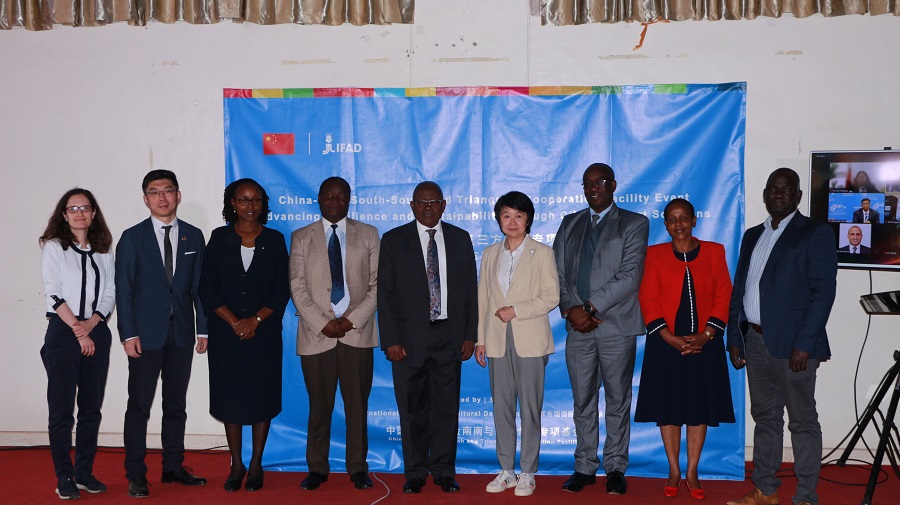
Experts from the United Nations system, governments, academia, think tanks, international organizations, and the private sector at the event. [Photo: Wang Hao/ Egerton University]
Smallholder farmers are increasingly vulnerable to the impacts of climate change, such as erratic rainfall, drought, and increased pests and diseases. Climate-smart agriculture and enhanced resilience are crucial for addressing these challenges, ensuring food security, and achieving sustainable development.
The China-IFAD SSTC Facility, established in 2018, spearheads efforts to pilot and scale up innovative solutions for rural development. It fosters knowledge exchange and collaboration among IFAD member states by leveraging expertise from China and the Global South.
This event presented successful climate-adaptive solutions funded by the China-IFAD SSTC Facility and promoted knowledge exchange on agricultural climate adaptation.
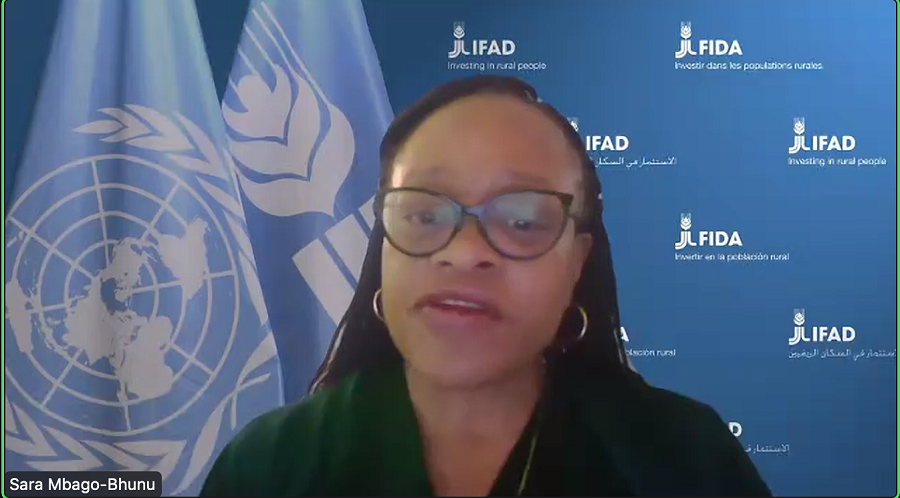
Sara Mbago-Bhunu, IFAD Regional Director for East and Southern Africa, speaks at the opening ceremony. [Photo: China-IFAD SSCT Facility]
In her opening remarks, Sara Mbago-Bhunu, IFAD Regional Director for East and Southern Africa Division said that among 17 SSTC projects in 38 countries funded by the Facility, 10 included elements to address climate change and provide effective solutions to governments, institutions, smallholders, and local private sectors. From environmental challenges to financial challenges, IFAD is a pioneer in innovative climate solutions, leveraging experiences from China and the Global South.
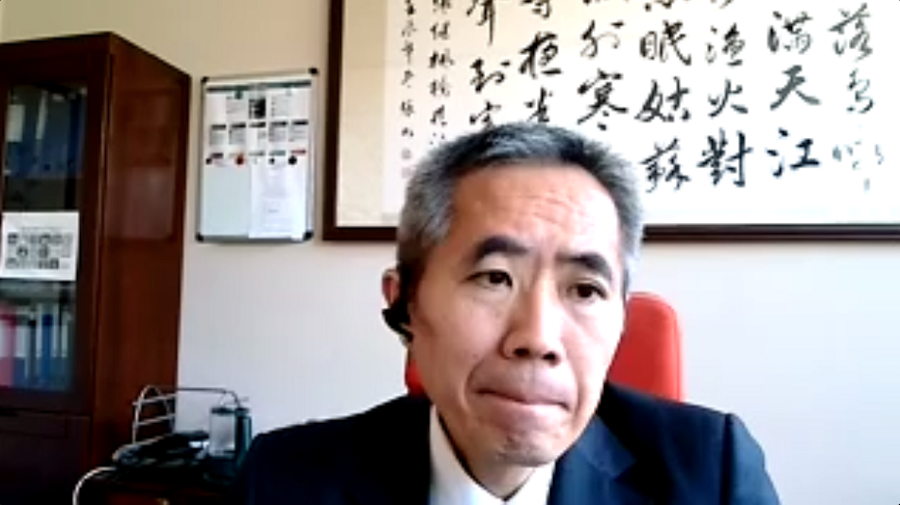
Mei Hongyong, Deputy Permanent Representative of China to the UN Agencies for Food and Agriculture, emphasizes China's active efforts in addressing climate change during the event. [Photo: China-IFAD SSCT Facility]
Mei Hongyong indicated that the theme of this event aligns with China's green agricultural development strategy. He spoke on behalf of the Chinese government and said that China has been actively mobilizing climate finance, promoting sustainable agricultural policies, methods, and innovations. He further stated that China is willing to, within the framework of the Global Development Initiative and leveraging the China-IFAD SSTC Facility, continue to deepen cooperation with all parties in resources, knowledge, and technology.
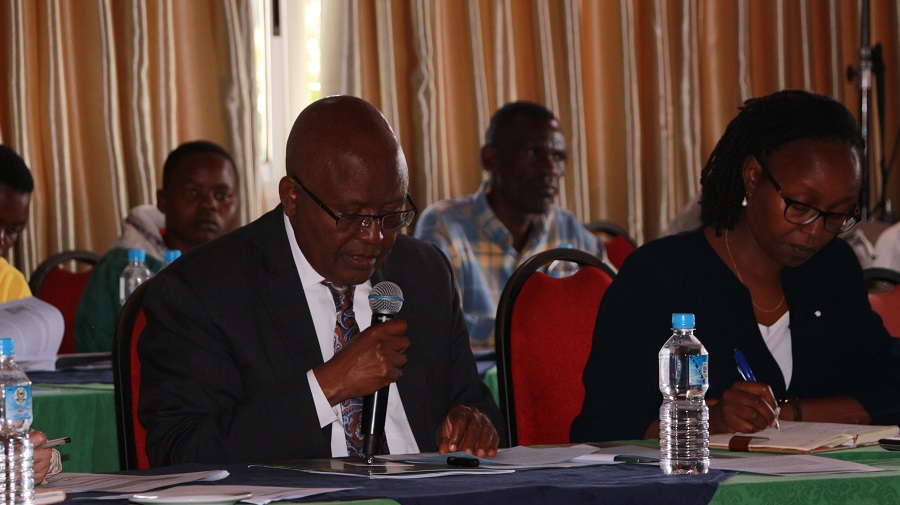
Prof. Isaac O. Kibwage, Vice-Chancellor of Egerton University delivered his opening remark. [Photo: China-IFAD SSCT Facility]
Isaac O. Kibwage, Professor and Vice-Chancellor, Egerton University, and Yan Zhu, Professor and Vice-President, Nanjing Agricultural University, also delivered speeches, expressing their commitment to continuing the cooperation in promoting sustainable agricultural development in Africa and exploring more climate-smart solutions.
Leonard Bor, County Executive Committee Member for the Department of Agriculture, Livestock, Fisheries, and Cooperatives in Kenya, explained how the SSTC project in Kenya mobilized partnerships to promote horticultural technology transfer, improve agricultural extension services, and enhance Kenya's tomato value chain with support from Nanjing Agricultural University and Egerton University.
Nie Fengying, also professor at Nanjing Agricultural University, demonstrated how China's sustainable, low-carbon mulberry-dyke fish pond integrated ecological agriculture system simultaneously produces fish and silk, promotes local aquaculture, eco-tourism, and cultural preservation, and is being replicated in Vietnam.
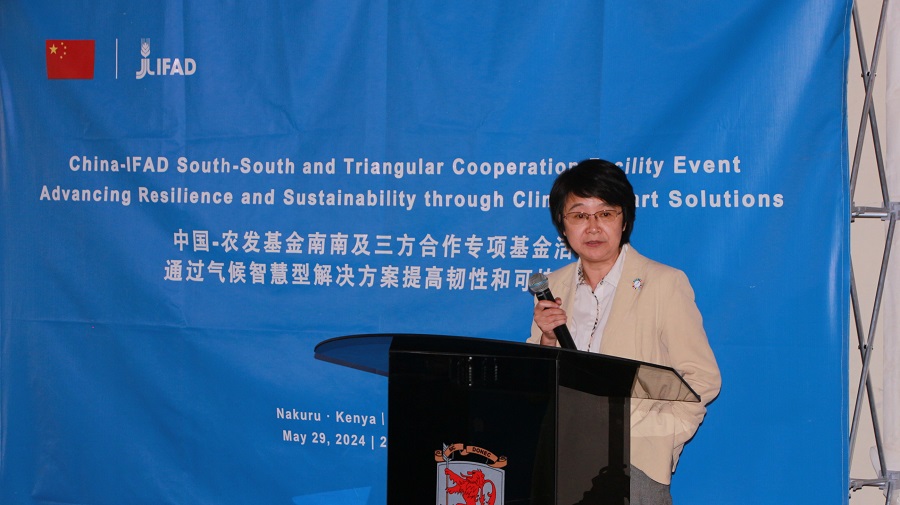
Wang Wei, Director of IFAD SSTC Facility, stressed SSTC as an effective tool for climate change adaptation at the closing ceremony. [Photo: China-IFAD SSCT Facility]
In the closing session, Wang Wei, Director of the IFAD SSTC Facility said, “We have seen the devastating effect of the recent floods in Kenya on local livelihoods. This reminds us that climate risks are closely related to each of us, related to our livelihood and future.”
She reiterated the importance of SSTC as an effective tool to advance peer learning and combat long term climate issues, “Developing and implementing experiences and solutions from and with the Global South is crucial for addressing climate challenges and serves as a solid foundation for our success.”